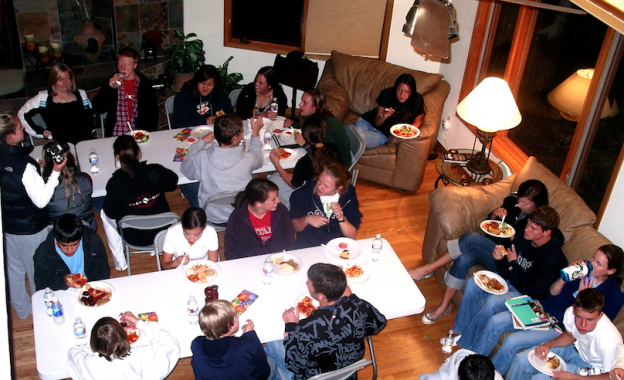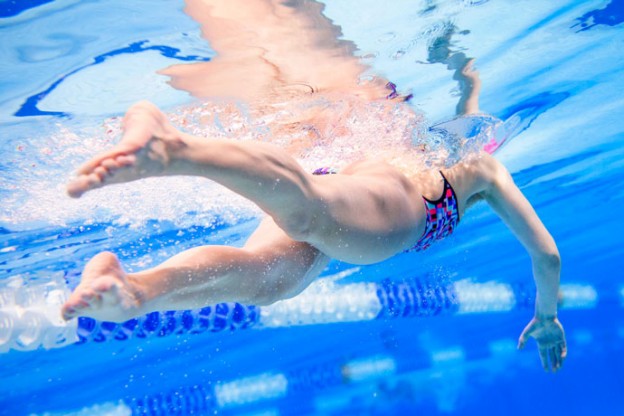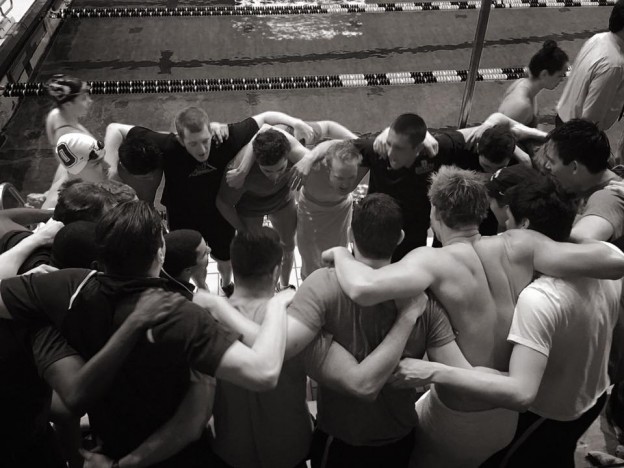- Title: Post-Meet Hand-Shaking Line
- Informant: Anna Kingsbury, Female, 19.Anna grew up in Apple Valley, Minnesota, and was a member of the Eastview High School swim team. She swam on the varsity high school team for four years and was a captain her senior year. When interviewed, Anna discussed her experiences being a swimmer at a high school level.
- Customary, Ritual
- Language: English
- Country of Origin: United States
- Social / Cultural Context: This ritual is done at the conclusion of a meet, when both teams line up to shake each other’s hands
- No audio, transcribed Skype interview.
- Transcript: “At the end of the meet, the teams line up on opposite sides of the pool. Then they walk toward each other, and everyone puts their hands up, and everyone kinda high-fives each other saying ‘good meet’ or something like that.”
- Informant’s comments: Anna described how this ritual is most commonly done at dual meets, when there are only two teams, versus in an invitational meet setting when there are multiple teams.
- Collector’s comments: This ritual is found among many levels of swimming, and was even reported at the collegiate level in a tri-meet setting when there were three teams.
- Tags/Keywords: Ritual, High-Five

Post-Meet High-Five Line
Leave a reply






